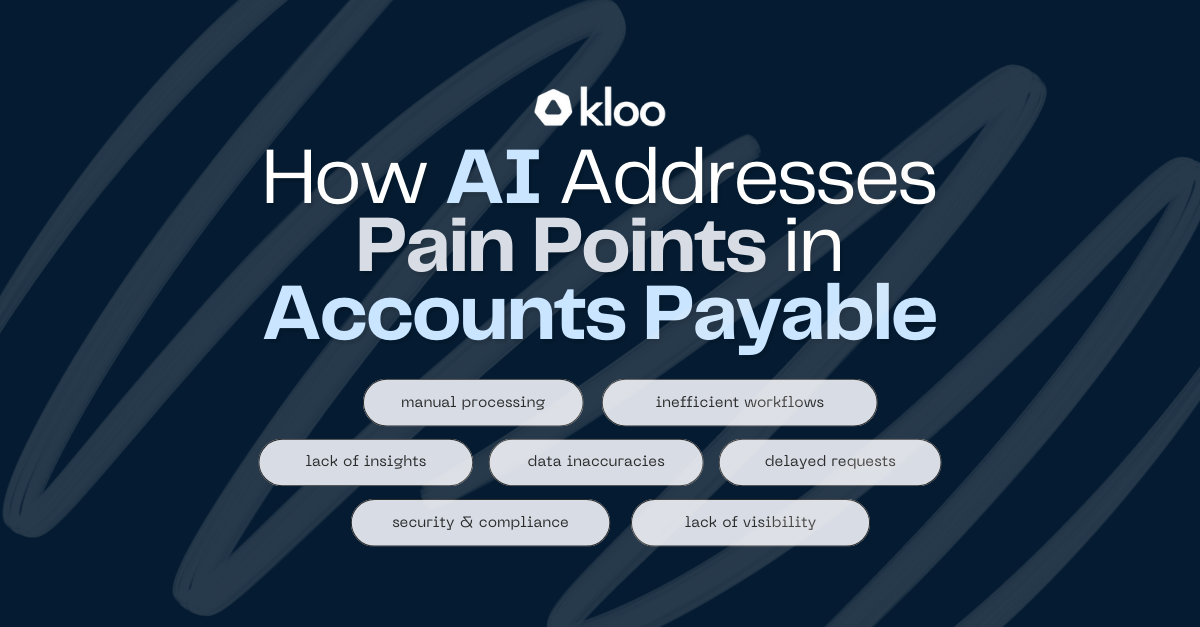
How CFOs can Leverage AI for Finance Teams

AI can provide a myriad of opportunities and advantages for finance teams. Artificial Intelligence (AI) has emerged as a game-changer in the world of finance, offering innovative solutions that can transform financial operations, reduce costs, and enhance efficiency.
From automating repetitive tasks to enhancing fraud detection, AI is proving to be a valuable tool in the finance sector for improving efficiency, reducing risks, and gaining a competitive edge in the growing market. Integrating AI into finance teams is proving to be a strategic move that can lead to significant cost savings and efficiency gains. We will first explore how AI can automate tasks like data entry, invoice processing, and reconciliations, freeing up financeteam to focus on more strategic tasks. We'll also look at how AI can enhance fraud detection, improve forecasting, optimise investments, and streamline compliance processes.
The Role of the CFO
Before we explore how companies leverage AI to save in their finance departments, we need to take a step back and explain why the CFO is now one of the key decision-makers when investing in new technology like AI. The role of the Chief Financial Officer has undergone a significant transformation in recent years. Traditionally, CFOs were primarily responsible for financial reporting and compliance. However, in today's dynamic business landscape, their role has evolved into that of a strategic partner.
The role of the CFO has evolved significantly in recent years. Modern CFOs are expected to be forward-thinking, actively involved in strategic decision-making, and contributing to the company's growth and profitability. Their responsibilities have expanded to encompass a broader view of the organisation, making them integral to long-term success. Therefore, they are one of the main decision-makers in technology investments.
The evolving role of CFOs is driven by several factors:
- Strategic Decision-Making: Modern CFOs are expected to actively participate in strategic decision-making. They play a crucial role in aligning financial strategies with overall business objectives, contributing to the organisation's growth and profitability.
- Risk Management: CFOs are responsible for managing financial risks, and this goes beyond traditional risk assessment. They need to navigate uncertainties in the market, anticipate potential disruptions, and develop strategies to mitigate risks. AI can play a vital role in analysing large datasets to identify patterns and predict potential risks, enabling proactive risk management.
- Long-Term Success: CFOs are increasingly seen as key players in ensuring the long-term success of the organisation. Their strategic insights, financial acumen, and ability to leverage technology contribute to the company's resilience and adaptability in a rapidly changing business environment.
- Technology Investments: As technology becomes a driving force in business transformation, CFOs have become key decision-makers in technology investments. They evaluate the potential impact of emerging technologies, including AI, on the company's financial performance and overall strategic goals.
Pain Points in Financial Operations
Finance departments face numerous day-to-day challenges, including long invoice processing times, high exception rates, manual processes, and lack of time for more strategic work.
According to a survey by Kloo in collaboration with The CFO community, 45% of AP professionals rate too many exceptions as their #1 challenge, while 57% rate processes as too slow and time-consuming. Additionally, 76% of CFOs are dissatisfied with cross-functional collaboration, and 49% say restructuring the business is a top priority.
These pain points stem from the continued reliance on manual data entry, paper invoices, and disjointed workflows. On average, it takes finance departments over 10 days to process an invoice, with 3-way match rates under 50%. The amount of time spent on low value tasks limits the ability to provide insights and have strategic impact.
AI solutions can help solve these common pain points in financial operations in several ways:
- Automating manual processes: AI can automate routine tasks, freeing up accountants to focus on more strategic activities. For example, AI-powered software can automatically match invoices with purchase orders, drastically reducing the time spent on this task.
- Enhancing data accuracy: AI algorithms are designed to learn from data, making them increasingly accurate over time. They can identify anomalies and errors in financial data, flagging them for review. This leads to more accurate financial statements and better decision-making.
- Strengthening security & compliance: AI can also play a significant role in enhancing security. Machine learning algorithms can detect unusual patterns or anomalies in financial transactions, providing an additional layer of security against fraud and cyber-attacks.
- Providing real-time insights: AI-powered analytics tools can sift through large volumes of financial data in real-time, providing actionable insights. These insights can help organisations identify cost-saving opportunities, optimise cash flow, and make data-driven decisions. This level of insight is invaluable for CFOs and finance teams, enabling them to strategise effectively.
Key Takeaways
In conclusion, the profound impact of AI on the finance sector presents a paradigm shift in operational efficiency, cost reduction, and strategic decision-making. The transformative role of AI is evident in its ability to automate routine tasks, enhance data accuracy, strengthen security and compliance, and provide real-time insights. Finance leaders, particularly CFOs, are positioned as key decision-makers in embracing this AI revolution. The modern CFO's role extends beyond traditional financial responsibilities to actively shaping strategic decisions, managing risks, and driving technology investments.
By leveraging AI-driven solutions, finance departments can overcome common challenges, optimise processes, and focus on more strategic endeavours, ultimately contributing to the long-term success and resilience of organisations in an ever-evolving business landscape. As AI continues to permeate financial operations, the imperative for CFOs to integrate these technologies becomes not only a strategic advantage but a necessity for staying competitive in a dynamic market.
Let's get started


